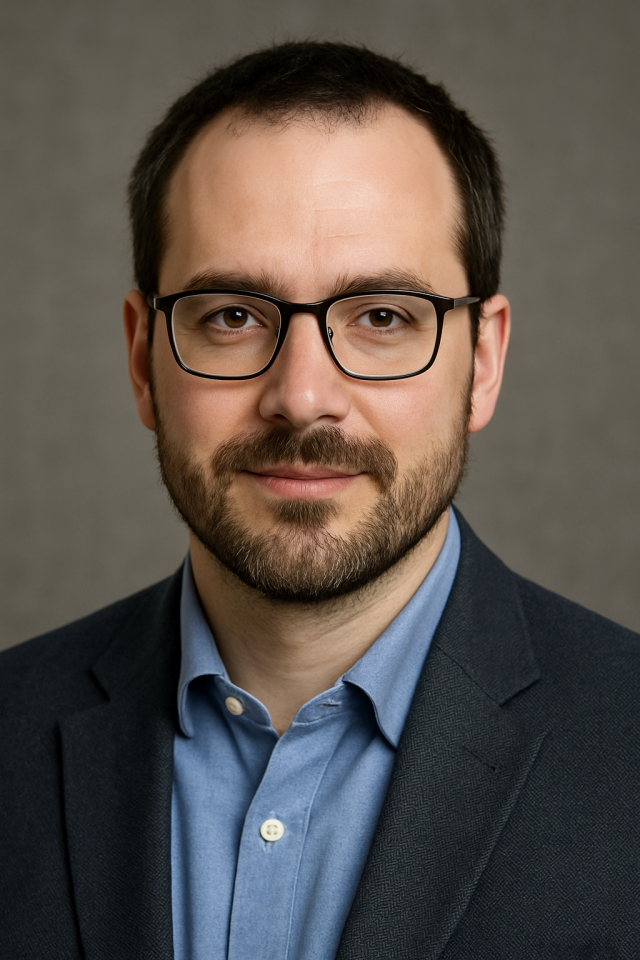Engineer Urges More Practical Learning and DIY Exploration to Power Canada’s Next Generation of Builders
(Isstories Editorial):- Quebec City, Quebec Jul 20, 2025 (Issuewire.com) – Veteran electrical engineer Frederic Lauzier is calling on Canadians to rediscover hands-on, do-it-yourself learning as a critical step in closing the country’s STEM skills gap and preparing youth for careers in engineering, trades, and technical innovation.
More on Isstories:
- From Midwest Fields to Global Destinations: How Travel Shaped Lauren Nash’s Worldview
- HUAIN Showcases Cutting-Edge Wireless Conference Solutions at InfoComm Asia 2025
- Level Up Garage Door Pros Delivers Expert Garage Door Services in League City, TX
- Tips for Wedding Photos: How Lily – Lime Helps Couples Capture Their Big Day Beautifully
- Local Cleaning Services Sets the Standard for Carpet – Upholstery Cleaning in Los Angeles, CA
Lauzier, whose work over the past 15 years has helped modernize Canada’s energy systems and industrial infrastructure, says practical learning played a key role in shaping his own path.
“I built a barely-working FM transmitter when I was 15 from salvaged parts,” he says. “It wasn’t for a grade or a contest. I just wanted to know if I could do it. That one project taught me more than a whole semester of lectures.”
A Tinkering Crisis
According to Engineers Canada, nearly 45% of engineering firms report a shortage of skilled professionals, especially in fields like power systems and industrial automation. Yet fewer students are entering trades or technical programs, and many young learners lack access to real-world, tactile learning.
“We’ve gotten too comfortable with digital simulations and plug-and-play kits,” Lauzier explains. “But engineering lives in the wiring, the heat, the timing. You have to feel the resistance in a wire to really understand the flow of current.”
Lauzier’s resume includes a federal smart grid initiative, where he helped install over 15,000 smart meters across rural Canada. He now works in R&D, developing embedded energy systems for remote northern communities–technology that must operate without constant human intervention.
“You don’t get a second chance 400 kilometers from the nearest technician,” he says. “That’s why fundamentals matter. That’s why hands-on experience matters.”
His personal time is equally grounded in the physical. He restores vintage radios–most recently a 1947 wooden tabletop model with vacuum tubes–and teaches soldering workshops in his hometown of Gatineau.
“Wires, solder, tools–kids remember that more than diagrams,” he says. “And they gain confidence fast.”
No Labs? No Problem.
Lauzier emphasizes that fostering practical learning doesn’t require advanced labs or expensive equipment.
“You can do this with a few hand tools and a breadboard,” he says. “Fix a flashlight. Build a basic circuit. Take apart an old coffee maker. It’s not about being fancy–it’s about being curious.”
He encourages parents, educators, and community groups to make space for unstructured exploration: “Let kids break stuff. Let them ask what every part does. That’s where learning lives.”
Why It Matters
In a world focused on automation, smart grids, and AI, Canada’s need for technical problem-solvers is growing fast. Yet, as Lauzier warns, we’re at risk of losing the very curiosity that drives innovation.
“We’re teaching kids to code before they learn how a switch works,” he says. “That’s backwards. Understanding the basics builds better coders, better builders, better citizens.”
What You Can Do
Lauzier isn’t launching a foundation or a product. Instead, he’s asking individuals to take action in their own homes and communities:
- Parents: Let kids fix things around the house, even if it takes longer.
- Educators: Integrate real-world projects into your lessons–circuit kits, repair tasks, or local field trips.
- Communities: Host tool-share programs or weekend build clubs.
Mentors: Share what you know–no matter your field.
“The next generation of engineers won’t come from screens,” he says. “They’ll come from garages, basements, and kitchen tables–where someone gave them the space to explore.”
About Frederic Lauzier
Frederic Lauzier is a licensed Professional Engineer and Certified Energy Manager based in Ottawa, Ontario. He has contributed to national smart grid projects, off-grid infrastructure, and industrial automation. He restores vintage electronics and mentors young engineers across Canada.
Frederic Lauzier
*****@fredericlauzierelectrical.com
https://www.fredericlauzierelectrical.com/
This article was originally published by IssueWire. Read the original article here.



















